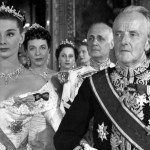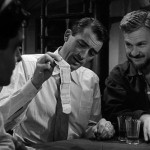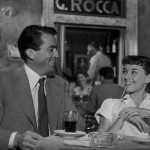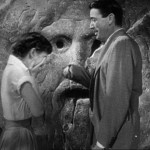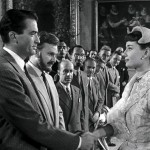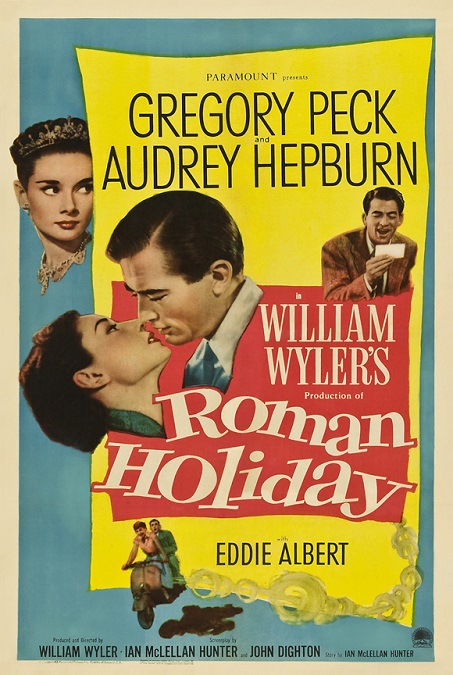
Roman Holiday – 1953
On a general scale of one to ten, I’m confident in giving Roman Holiday an eight. As a romantic comedy, actually on par with many movies made today, it was a bit predictable, and yet sweet in its own way. It had an ending that, though it was completely appropriate, wasn’t exactly expected, and for that, I have to give the film proper credit.
It starred Gregory Peck and Audrey Hepburn in her first American movie role. The plot was simplistic and has been used in many different films, in many different ways. A poor little rich girl, in this case, an actual princess, escapes her overly-structured and pampered life. While she is exploring the outside world and discovering how the common folk live, she finds love, which inevitably leads us back to the ending. Will she get to stay with him, or will the lovers be forever parted by their separate stations in life?
The young ingenue, Hepburn, who was bubbling over with sweetness and innocence, stole the show. She was incredible as Princess Ann of an unspecified country. She was a mere 24 years old when the film was released, and she charmed all of Hollywood with her beauty, poise and innocence. She had that long, graceful neck, natural beauty and a smile that could light the world. In fact, she was so good that she took home the Oscar for Best Actress.
Peck, did his usual good job, though it was a slight departure for the actor who normally did not perform comedic roles. He had an easiness about him that was disarming and pleasant to watch. He played Joe Bradley, an American newspaper reporter in Italy. When Ann falls asleep on a park bench, Joe takes her to his apartment rather than letting her get arrested.
He doesn’t realize who she is until the next morning. Then he decides to make some money by getting the “exclusive” story on the Princess. He takes her all over Rome, giving her the experiences she has never had but has always wanted. Of course, they fall in love. Why wouldn’t they?
To complete his exploitation of Ann’s secret escapades around the city, he enlists the help of his photographer friend, Irving Radovich, played by Eddie Albert. Albert was like the comic relief in a mildly comedic film. He did a few pratfalls and got drinks spilled on him several times. He also got a few laughs in his exaggerated efforts to snap candid photos of the Princess. The two men go out of their way to hide their true motives from the girl, just as Ann tries to hide her identity from her new friends.
The movie was filmed on location in Rome and shows off a few of the great attractions the city has to offer: The Colosseum, the Mouth of Truth, a street-side café, or even the Palazzo Barberini, which was actually used as the exterior of the Princess’s embassy. The beautiful locations seemed to be just as much a part of the storytelling as were the actors and the script. Director William Wyler did a fantastic job of showing them all off.
By the end of the movie, I was expecting the typical Hollywood ending. I thought I would see the two lovers find a way to make the relationship work. Somehow, they would stay together and throw caution to the wind. But I was happily surprised that Wyler did the right thing. There was no way that such a relationship would be allowed, and both Joe and Ann knew it. They made their peace with their situation and said their goodbyes, sharing a teary-eyed kiss before parting. Joe never wrote his exclusive story, deciding not to exploit the girl with whom he had fallen in love.
The film was a wonderful blend of romance and humor, making it the perfect example of a romantic comedy. But therein lies its only flaw. Romantic comedies are generally very predictable. You usually know how the story is going to end before the film is half over. But that being said, its realistic ending was one of its saving graces. That, and the fact that Hepburn was incredibly beautiful and mesmerizing to watch. She was young, fresh, and vivacious, and Roman Holiday was a wonderful way to introduce her to the American movie-going public.
